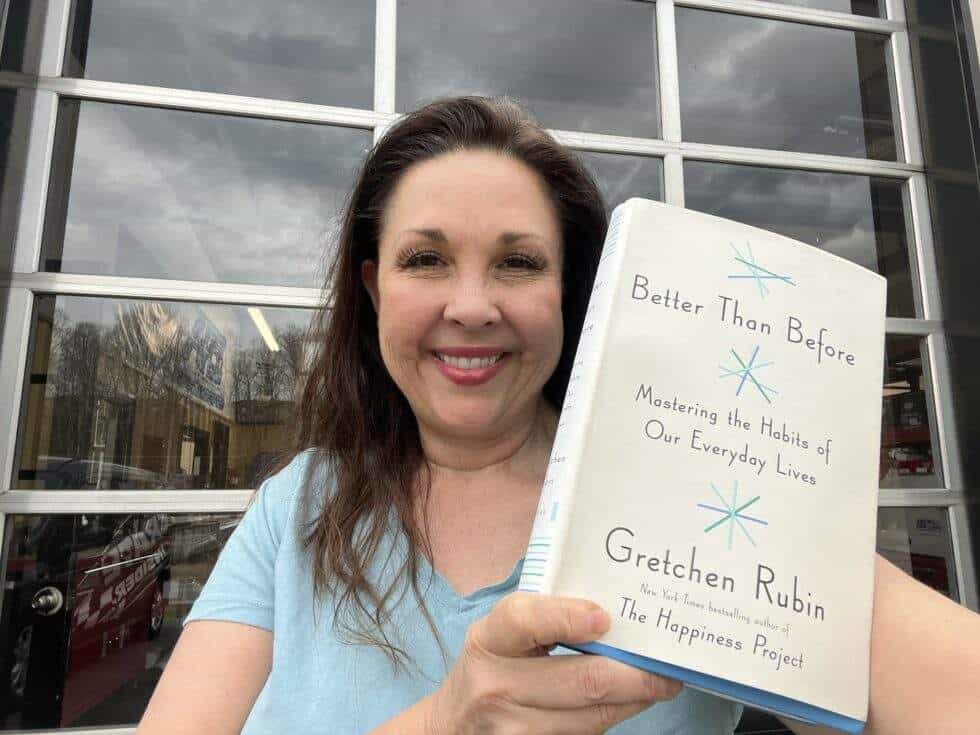
Better Than Before: How to Form Lasting Habits for a Happier, Healthier Life
If you’re anything like me, you’ve probably tried to form new habits at some point in your life. Maybe you wanted to exercise more, eat healthier, or read more books. But no matter how hard you tried, you just couldn’t seem to stick to your new habit. If this sounds familiar, then I’ve got a book recommendation for you: Better Than Before by Gretchen Rubin.
Rubin is a bestselling author who has written several books on happiness, habits, and productivity. In Better Than Before, she offers practical advice on how to create and sustain habits that will help us lead happier, healthier, and more productive lives.
The book is divided into two main parts: The first part explores the key factors that influence habit formation, such as personality, motivation, and self-control. The second part delves into specific habit strategies, such as monitoring, scheduling, and accountability. Throughout the book, Rubin draws on her own experiences and research to offer valuable insights and actionable advice.
The Four Tendencies Affecting Habit Formation
One of the most interesting and useful parts of the book is Rubin’s framework of the Four Tendencies. This framework divides people into four categories based on how they respond to expectations: Upholders, Questioners, Obligers, and Rebels.
- Upholders: Upholders readily meet both inner and outer expectations. They’re self-directed and motivated, and they tend to stick to rules and schedules.
- Questioners: Questioners question all expectations, and will only meet them if they believe the expectations make sense. They need to understand the reasoning behind a habit before they’ll adopt it.
- Obligers: Obligers readily meet outer expectations, but struggle to meet inner expectations. They need external accountability to stick to a habit, and they often put others’ needs before their own.
- Rebels: Rebels resist all expectations, both inner and outer. They value their freedom and resist being told what to do.
According to Rubin, understanding your tendency is crucial to developing habits that work for you. For example, if you’re an Obliger (like me), you might need external accountability to stick to a habit, while an Upholder might find it relatively easy to follow a strict routine.
I’ve read quite a bit about habits and I think this is the first time I’ve seen an author recognize that people are different and tactics for changing habits don’t apply to everyone.
Rubin also emphasizes the importance of self-knowledge when it comes to habit formation. She encourages readers to ask themselves questions such as “What are my values?”, “What are my goals?”, and “What are my strengths and weaknesses?” By understanding yourself better, you can create habits that align with your values and help you achieve your goals.
Tactics and Strategies
The book is filled with options to try for changing habits. For example, if you don’t enjoy running, but you love listening to audiobooks, you could combine the two by listening to an audiobook while you run. By finding ways to make habits more pleasurable, you can increase the likelihood that you’ll stick to them.
One of the things I really appreciated about Better Than Before is that Rubin acknowledges that there’s no one-size-fits-all approach to habit formation. What works for one person might not work for another. That’s why she offers a variety of strategies and tools that you can experiment with to find what works best for you. For example, she suggests using a “habit tracker” to monitor your progress, but she acknowledges that not everyone will find this tool helpful.
While some of the advice in the book may seem obvious or simplistic, like “make your habits convenient” or “start small,” this seemingly simple advice definitely resonates with me.
Forming New Habits is Challenging
One thing I appreciated about the book is that Rubin doesn’t shy away from the fact that forming new habits can be challenging. She acknowledges that there will be times when you slip up, and she offers advice on how to get back on track. She also suggests that it’s important to have self-compassion and not beat yourself up if you’re not perfect. This is a refreshing and helpful perspective, especially for those of us who tend to be hard on ourselves.
Another takeaway is that by forming habits, we decide not to decide. In other words, habits become automatic responses without stopping to think or decide. Habits can free us from the burden of decision-making. Of course, this can be a positive or a negative depending on the habit, but it was a new way of viewing habits that I hadn’t encountered before.
Overall, I highly recommend Better Than Before to anyone who’s looking to form new habits or improve their existing ones. Whether you’re looking to exercise more, eat healthier, meditate regularly, or simply be more productive, this book has something to offer. With its practical advice, insightful research, and engaging writing style, Better Than Before is a great read for anyone who wants to live a happier, healthier, and more fulfilling life.



